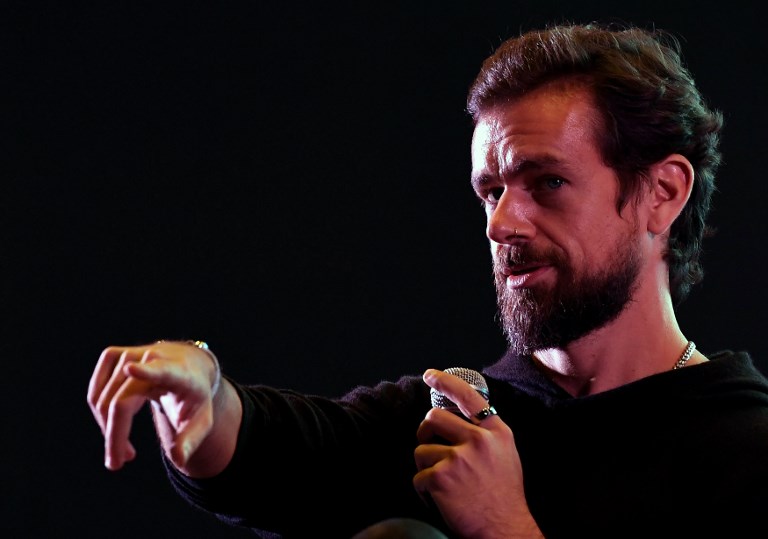It took a couple days, but Twitter CEO Jack Dorsey has responded to the plethora of critics who called him out for the recent post-meditation retreat thread in which he sang Myanmar’s praises without once mentioning the ongoing ethnic cleansing of Rohingya Muslims.
Those looking for an abject apology, however, will have to settle for what we got today, which was … not abject.
Actually, it was more of a “non-apology apology,” one in which he explained that while he was “aware” of the ongoing human rights abuses, he didn’t think encouraging people to spend their tourist dollars in Myanmar amounted to an “endorsement” of the government.
He also admitted that he “needed to learn more.” So there’s that.
I’m aware of the human rights atrocities and suffering in Myanmar. I don’t view visiting, practicing, or talking with the people, as endorsement. I didn’t intend to diminish by not raising the issue, but could have acknowledged that I don’t know enough and need to learn more.
— jack (@jack) December 11, 2018
As he explains at the beginning of his mea culpa, he was in Myanmar for the “singular objective of working on myself.” So you see, you can’t really blame him for not giving much thought to anything outside his immediate meditation concerns. We mentioned the balloon, right?
No, this trip was strictly for personal development and he simply wanted to share his journey to encourage others to consider meditation as a practice.
I took this time with a singular objective of working on myself. I shared my experience with the world with the singular objective of encouraging others to consider a similar practice. Simply because it’s the best thing I’ve found to help me every day.
— jack (@jack) December 11, 2018
When he finally addressed Twitter’s influence in Myanmar, he said it’s main goal was to be “a way for people to share news and information about the country as well as to bear witness to the plight of the Rohingya and other peoples and communities.”
Twitter is a way for people to share news and information about events in Myanmar as well as to bear witness to the plight of the Rohingya and other peoples and communities. We’re actively working to address emerging issues. This includes violent extremism and hateful conduct.
— jack (@jack) December 11, 2018
He also added that his company is actively working to address emerging issues, including “violent extremism and hateful conduct,” something he’s in the past been accused of not taking particularly seriously, including in Myanmar.
In September 2017, in the wake of an attack by extremist militants that provided the casus belli for a brutal military campaign that forced 720,000 Rohingya Muslims from Northern Rakhine, 1,500 new accounts with provocative hashtags and messages commenting on the violence emerged on Twitter.
”Hatebook,” a subsequent Reuters investigation into how Facebook was losing the war on hate speech in Myanmar, also examined the proliferation of hate speech on Twitter.
While the report acknowledged that Twitter’s “hateful conduct policy” forbids attacks on the basis of race, ethnicity or national origin, it cited numerous instances of tweets which seemed to do exactly that.
Dorsey personally came under fire from actor and comedian Seth Rogen in June, who called him out for his “bizarre need to verify white supremacists,” and concluded that the Twitter CeO simply doesn’t “give a fuck.” (Editor: Verifying = that little blue checkmark. We’re still waiting on ours.)
I’ve been DMing with @jack about his bizarre need to verify white supremacists on his platform for the last 8 months or so, and after all the exchanges, I’ve reached a conclusion: the dude simply does not seem to give a fuck.
— Seth Rogen (@Sethrogen) July 3, 2018
A month later, he was under fire once more when he publicly defended the right of Alex Jones, the conspiracy theorist/ultra-right wing host of InfoWars, to post on the site, stating in a four-part tweet that Jones “hasn’t violated our rules.”
We didn’t suspend Alex Jones or Infowars yesterday. We know that’s hard for many but the reason is simple: he hasn’t violated our rules. We’ll enforce if he does. And we’ll continue to promote a healthy conversational environment by ensuring tweets aren’t artificially amplified.
— jack (@jack) August 8, 2018
He then did an abrupt about face in September, permanently banning Jones amid public pressure to take action, citing numerous instances of accounts related to Jones violating Twitter’s policies.




